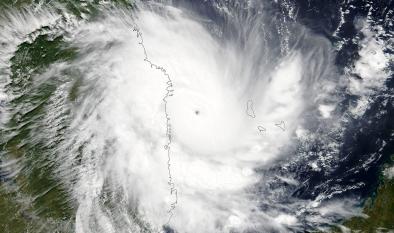Science Source
A 66‐year tropical cyclone record for south‐east Africa: temporal trends in a global context
- Investigates changes in the frequency and timing of tropical cyclone landfalls over the south‐west Indian Ocean during the last 66 years
- States that little is known about the spatial and temporal trends of such storm landfalls during recent historical times, specifically the last ca. 100 years
- Analyzes three storm track records spanning periods of 66–161 years
- Establishes that much of the perceived change in storm numbers can be attributed to improvements in storm detection methods over the past century
- Finds no statistically significant trends in the frequency of tropical cyclone landfalls over Madagascar and Mozambique over the past 6 decades, despite more comprehensive records during the most recent period
- States, however, that there is considerable interannual variability in the number of storms making landfall over the countries investigated; most probably driven by cyclical atmospheric forcing, including El Niño‐Southern Oscillation (ENSO) and the Quasi‐Biennial Oscillation (QBO)
- Concludes that recent trends indicate an increasing number of tropical cyclones tracking to the south of Madagascar, potentially associated with the southward shift of the 26 °C isotherm, combined with a decrease in the steering flow during La Niña years
Related Content
Headline

Apr 25, 2019 | Washington Post
Historic Tropical Cyclone Kenneth crashes ashore in northern Mozambique, where devastating flooding is feared
Science Source
| Nature
A global slowdown of tropical-cyclone translation speed
James P. Kossin
Science Source
| Nature Geoscience
Enhanced poleward propagation of storms under climate change
Talia Tamarin-Brodsky, Yohai Kaspi
Science Source
| Scientific Reports
Persistent northward North Atlantic tropical cyclone track migration over the past five centuries
Lisa M. Baldini, James U. L. Baldini, Jim N. McElwaine et al


